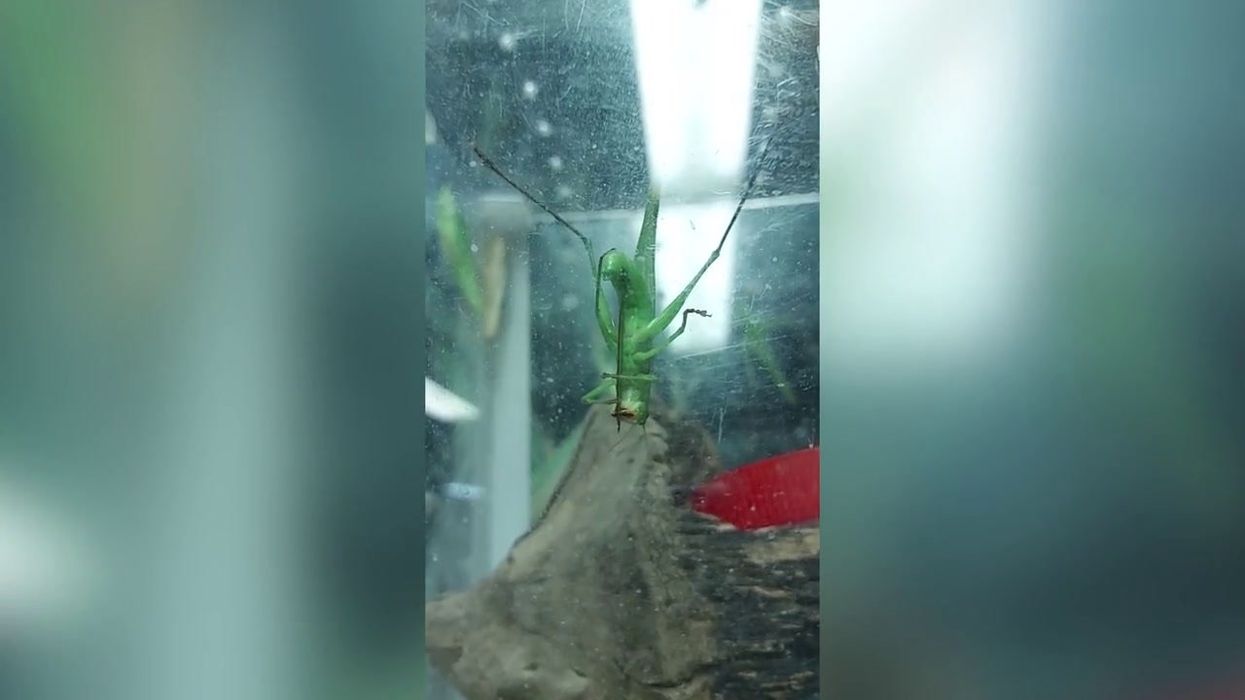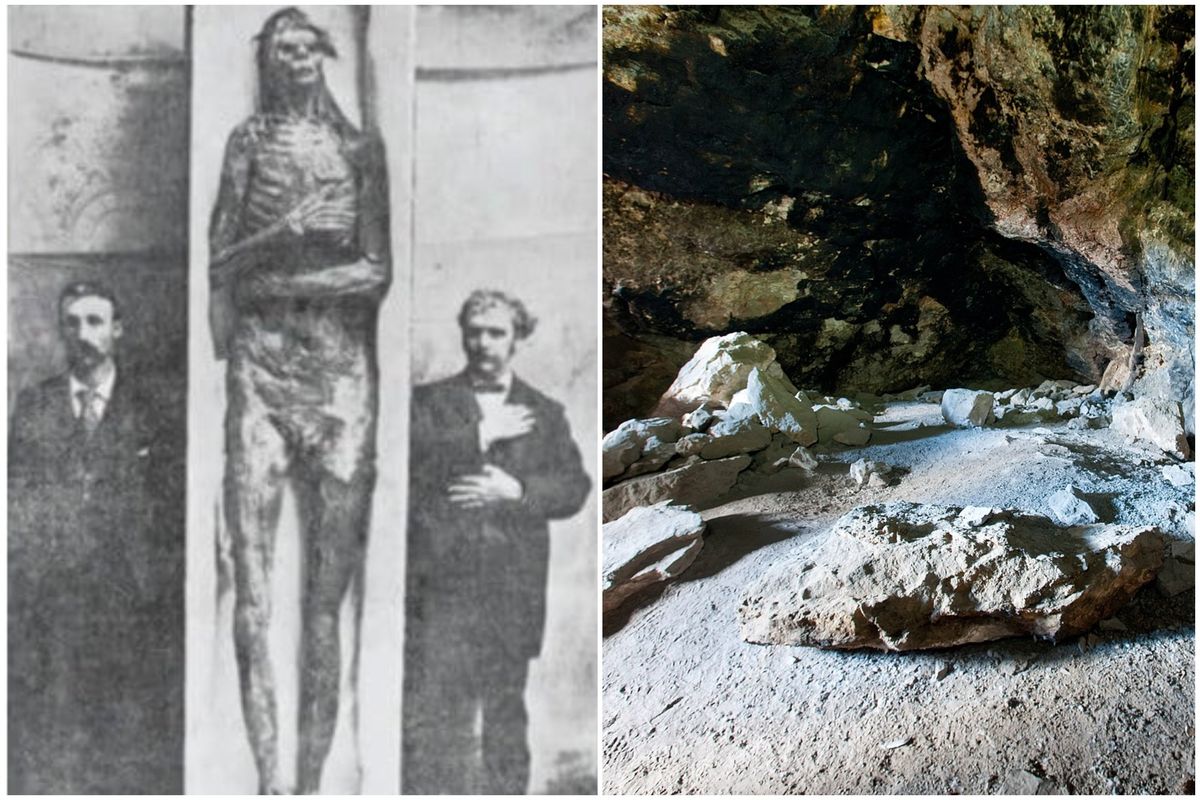Sinead Butler
Sep 30, 2023
Pet grasshopper hangs upside down in tank
ViralPress / VideoElephant
Archaeologists discovered the remains of a man from sometime between 1,000 and 1,400 years ago and also were able to determine his untimely death was caused by constipation.
A 2019 study established the male was so constipated in fact, that his colon swelled up to six times its normal diameter - in what is labelled as a "megacolon," and ultimately died from parasite-borne Chagas disease at the age of 35-45 years old.
Found in the Lower Pecos Canyonlands, Texas in 1937, the Skiles mummy was among over 150 mummified bodies unearthed in the area.
But particular attention was paid to this adult male due to his naturally mummified remains being so well preserved, as he had a full head of hair, though also had a blocked up gastrointestinal system.
So serious was the blockage that the man became malnourished from being unable to properly digest food, and the study found that in his last few months of life, he had been getting fed grasshoppers by his family or community as a means to get protein in his body.
“They were taking off the legs,” Karl Reinhard, professor in the School of Natural Resources at the University of Nebraska–Lincoln, explained.
“So they were giving him mostly the fluid-rich body – the squishable part of the grasshopper. In addition to being high in protein, it was pretty high in moisture.
"So it would have been easier for him to eat in the early stages of his megacolon experience.”
The study also determined just how constipated the man would have been.
“The phytoliths were split open, crushed. And that means there was incredible pressure that was exerted on a microscopic level in this guy’s intestinal system, which highlights even more the pathology that was exhibited here,” Reinhard added.
“I think this is unique in the annals of pathology – this level of intestinal blockage and the pressure that’s associated with it.”
Sign up to our free Indy100 weekly newsletter
Have your say in our news democracy. Click the upvote icon at the top of the page to help raise this article through the indy100 rankings.
Top 100
The Conversation (0)














